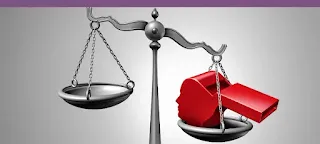Under whistleblowing regulations, certain concerns can be reported by law. These concerns are referred to as "qualifying disclosures" and are crucial for maintaining accountability and transparency in the workplace.
Types of Qualifying Disclosures
Qualifying disclosures can fall under several categories, including:
Criminal Activity
Example: An employer engaging in bribery or fraud.Breach of Legal Duty
Example: Neglecting a duty of care, such as inadequate treatment in a care home setting.Miscarriage of Justice
Example: An employee being wrongfully dismissed due to administrative or technical errors.Health and Safety Risks
Example: Requiring staff to handle or serve contaminated food knowingly.Environmental Damage
Example: Polluting nearby rivers or other environmental violations.
Additionally, efforts to conceal these issues are also reportable under whistleblowing regulations.
Timing and Scope of Qualifying Disclosures
Whistleblowing protections apply to issues that:
- Occurred in the past.
- Are happening currently.
- Are expected to happen in the future.
These regulations extend to concerns involving activities taking place internationally, ensuring whistleblower protections across borders. Importantly, you can report multiple qualifying disclosures at the same time.
Legal Protection for Whistleblowers
As a whistleblower, you are legally protected if you can demonstrate that your disclosure:
- Falls under one of the qualifying disclosure categories.
- Is made in the public interest.
What Does "Public Interest" Mean?
The issue must affect more than just yourself. It should potentially impact coworkers, customers, or the wider community. Personal grievances, such as disputes over pay, may not meet this standard.
Factors That Strengthen Public Interest Claims
Your case is more likely to succeed if:
- The issue is severe: Serious wrongdoing or negligence is more compelling.
- The action was deliberate: Intentional wrongdoing carries more weight.
- The organization is large or influential: High-profile entities have a greater impact.
- Many people are affected: Wider consequences demonstrate a strong public interest.
When Whistleblower Protections Do Not Apply
You may not be protected under whistleblowing laws if:
- You commit a criminal offence while disclosing information, such as hacking into secure files.
- You breach legal professional privilege by revealing information obtained during legal consultations.
Take Action Safely
Whistleblowing plays a vital role in exposing misconduct and promoting integrity. If you’re considering making a qualifying disclosure, ensure your concerns meet the legal criteria and take appropriate steps to safeguard your rights.


Comments